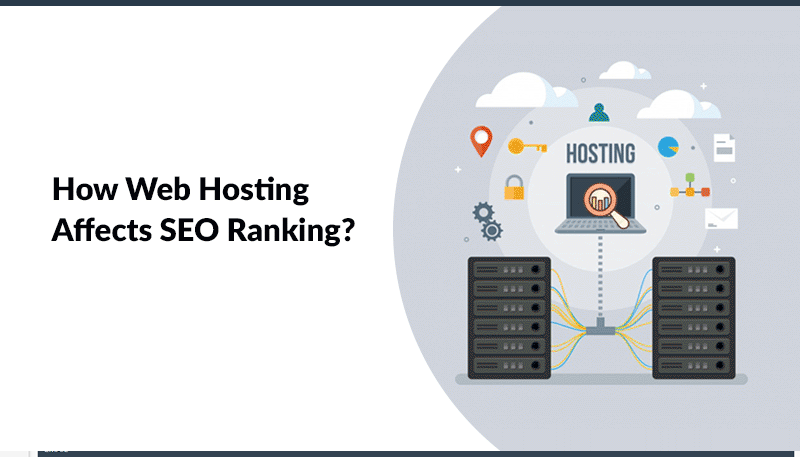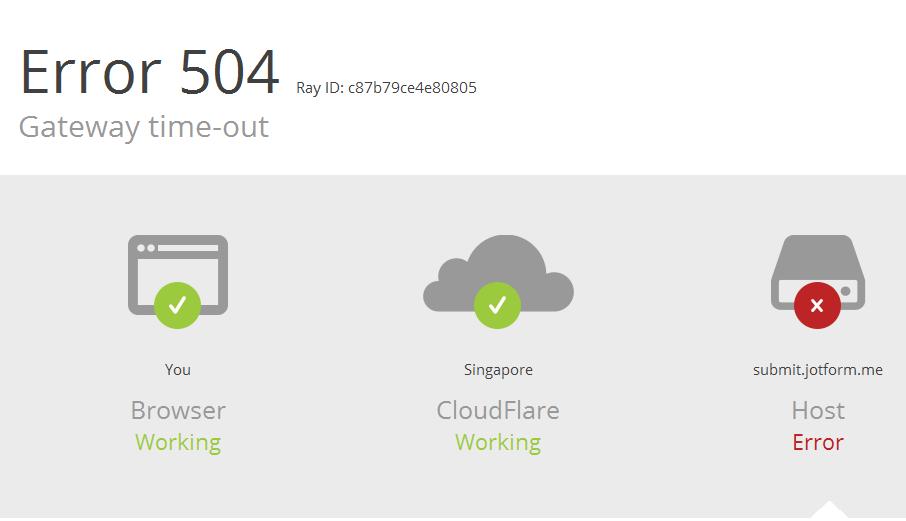How Your Hosting Affects Your Website’s Traffic, Engagement, and Profitability
- Category : Web Hosting
- Posted on : Jul 29, 2016
- Views : 3,204
- By : Xavier N.

Hosting Affects
Choosing a hosting provider is a decision that shouldn’t be taken lightly. No matter how good your site, a poor choice of host can come back to bite you – and while switching provider is possible, it can also be quite a chore.
It’s not just about the hosting plan you choose either, since a provider’s sales blurb could be missing information on key metrics that end up having a big impact on site performance. To really make an informed decision, you need to fully understand how your choice of hosting affects your site’s traffic, engagement, and profitability.
In this post, we will explore five key criteria for you to bear in mind. By the time we’re done, you’ll know exactly what to look for when shopping for a provider.
Let’s get cracking!
1. Site Speed
Almost 50% of visitors expect websites to load within two seconds or less, and approximately 40% will bail if it takes over three seconds. Underestimating the impact of long loading times could result in a very costly lesson, especially for e-commerce sites. A few years ago, an Amazon internal study determined that a mere increase of 100ms in their page loading times directly led to a 1% drop in sales.
Assuming your site is properly optimized, your loading times should be blazingly fast, unless your host is dropping the ball. If things aren’t as you expect, it could be due to a lack of investment in server infrastructure, or an overload of shared servers – which should never occur unless your provider is severely neglecting their responsibilities.
So what exactly can you do to avoid being stuck with a slow as molasses hosting provider? Your best bet is to do a quick search around the web for independent reviews, including speed tests. There’s a huge community of professionals out there who take the time to review these kinds of services, and they’re usually quite thorough.
For example, a recent review of our services calculated that sites hosted on our platform loaded in 203ms on average during a test in May. Pretty good, even if we do say so ourselves!
2. Uptime
The importance of uptime from a site owner’s perspective is pretty simple to grasp. For every minute your site spends offline, you’ll be losing out on new traffic, repeat visitors, and (most importantly) sales.
According to a study conducted by IHS, which polled 400 mid to large clients, most businesses face an average of five network downtimes per month. Needless to say, downtimes are serious for any sized business.
There are many reasons that downtimes occur, such as:
- Failure of network devices
- Lack of constant supervision by system administrators
- Power outages
- Poorly implemented configuration changes
- DDoS attacks
While it’s impossible for any provider to offer 100% uptime, the best ones work incredibly hard to get as close as possible to that figure. How close to 100% can you expect to get if you sign up with a stable provider? A Hosting Facts comparison of 27 different services ended with the top provider – ourselves, incidentally – scoring an impressive 99.98% uptime over a period of 12 months.
3. Support
Picture the following: you sit down at your desk with a fresh mug of coffee, crack your fingers, and navigate to your website’s back end to check your analytics and stats – only to be greeted by a 504 error:

Before hurling your mug at the screen, you check for any messages from your hosting provider regarding scheduled downtimes, or if there’s any mention on their social media accounts. Nothing. The next step is to send an email to their support desk to double-check you didn’t break anything on your end, then play the waiting game.
A day later – during which you lost out on traffic and potential sales – you finally get an answer, and it turns out that a couple of servers needed to be rebooted. The whole issue could’ve been solved in minutes if your host had system administrators on call, or bothered to check their messages promptly.
The moral of this story is that when reading reviews, you should always consider a provider’s reputation when it comes to their level of support. If they’re known for slacking off, you should take your business elsewhere.
4. Security
Attackers are constantly on the lookout for exploitable vulnerabilities to gain access to both your servers, and any valuable information stored therein – and if your hosting provider isn’t on the ball, then you could pay the price for it.
Examples of shoddy security practices include using outdated versions of admin panels (such as cPanel) and database management tools, and storing passwords without hashing them.
These kind of issues can be hard to identify unless you’re an expert or they’re included in reviews, so before you commit to any provider, we recommend carrying out a simple Google search to see if you can find any previous instances of big security breaches.
5. Scalability
The final criterion we’ve chosen to include in this list is by far the simplest – scalability. Whether you’re running an online store or a personal blog, site growth (and ultimately prosperity) should be the overall aim.
A good host will provide you with a wide variety of plans, designed to suit multiple budgets and sites that demand varying resources. If you’re starting on the lowest tier, they’ll make sure you have the necessary resources to help your projects run seamlessly. They’ll also let you know when it’s time to upgrade to a higher tier, offering you more resources catered to your specific needs.
Conclusion
While the building itself (that’d be your site!) is important, your web hosting provider represents the foundation. A good host can enable your sites to reach their full potential simply by providing stability and a helping hand when you need it.
When you’re looking for a host for your next project (or reconsidering your existing provider), remember to keep an eye out for the criteria we mentioned earlier:
- Good site speeds to encourage low bounce rates.
- Uptimes as close to 100% as humanly possible.
- An excellent support service to back you up if difficulties arise.
- Solid security practices to ensure the safety of your sites and your visitor’s data.
- Enough room for your projects to flourish!
What do you consider to be the most important criteria to look for in a hosting service? Share your thoughts with us in the comments section below!
Categories
- cPanel Question 47
- cPanel Software Management 29
- cPanel Tutorials 13
- Development 29
- Domain 13
- General 19
- Linux Helpline (Easy Guide) 156
- Marketing 47
- MySQL Question 13
- News 2
- PHP Configuration 14
- SEO 4
- SEO 42
- Server Administration 84
- SSL Installation 54
- Tips and Tricks 24
- VPS 3
- Web Hosting 44
- Website Security 22
- WHM questions 13
- WordPress 148
Subscribe Now
10,000 successful online businessmen like to have our content directly delivered to their inbox. Subscribe to our newsletter!Archive Calendar
| Sat | Sun | Mon | Tue | Wed | Thu | Fri |
|---|---|---|---|---|---|---|
| 1 | 2 | 3 | 4 | 5 | 6 | |
| 7 | 8 | 9 | 10 | 11 | 12 | 13 |
| 14 | 15 | 16 | 17 | 18 | 19 | 20 |
| 21 | 22 | 23 | 24 | 25 | 26 | 27 |
| 28 | ||||||
Recent Articles
-

Posted on : Sep 17
-

Posted on : Sep 10
-

Posted on : Aug 04
-

Posted on : Apr 01
Tags
- ts
- myisam
- vpn
- sql
- process
- kill
- tweak
- server load
- attack
- ddos mitigation
- Knowledge
- layer 7
- ddos
- webmail
- DMARC
- Development
- nginx
- seo vpn
- Hosting Security
- wireguard
- innodb
- exim
- smtp relay
- smtp
- VPS Hosting
- cpulimit
- Plesk
- Comparison
- cpu
- encryption
- WHM
- xampp
- sysstat
- optimize
- cheap vpn
- php-fpm
- mariadb
- apache
- Small Business
- Error
- Networking
- VPS
- SSD Hosting
- Link Building
- centos
- DNS
- optimization
- ubuntu







